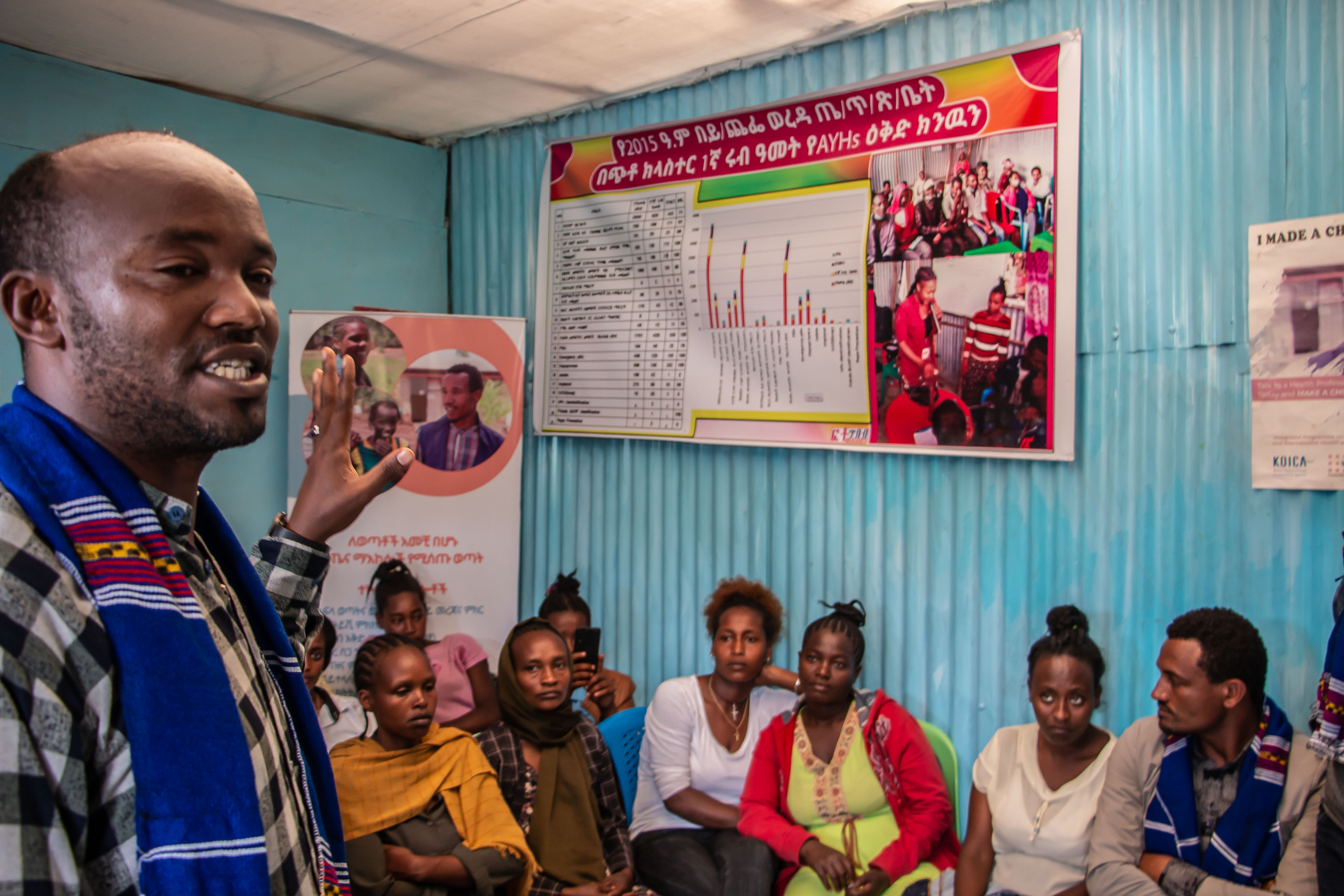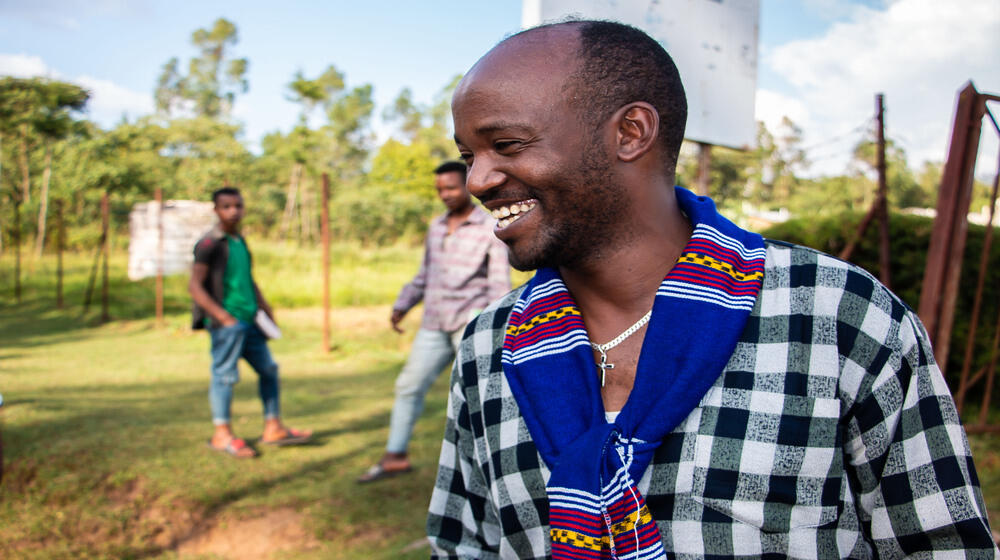Yirga Chefe, SNNP Region - “When I was only one-year old, I lost my mother while giving birth to my youngest sister. No mother should die while giving birth”, says Mr. Fikru Assefa, Head of the Maternal and Child Health Unit at Yirgachefe Woreda in Ethiopia’s Southern Nations, Nationalities and People’s Region.
"During my childhood, I was forced to look after my youngest sister and to do anything to get money to buy school materials and food”, explains Fikru who was able to continue his education with the support of neighbors and the community.
After many struggles, Fikru fulfilled his dream of becoming a Maternal and Child Health (MCH) Nurse from Hawassa University. “When I graduated and got my first job at Edido Health Center as a nurse, it was the happiest time of my life”.
The early loss of his mother has driven Fikru to become a champion for improved women’s and maternal health in Yirgachefe, Gedeo zone, one of the most densely populated areas of the country.
“No mother should die while giving birth”
Since 2000, Ethiopia has made an impressive progress on reducing the maternal and child mortality rates by half. Nowadays, 50 % of women give birth at a health facility, decreasing the risk of death due to complications during delivery.
However, a maternal mortality rate of 412 per 100,000 live births and child mortality rate of 67 per 1,000 is still too high.
“Ensuring timely arrival and quality service at facilities remains a challenge, particularly in remote areas. We need to enhance access to basic emergency obstetric and newborn care (BEmONC) services as well as ensure proper road conditions and avail ambulances to do referrals to health facilities”, explains Fikru Assefa on the conditions hampering further progress in Gedeo zone, SNNPR.
Recent inter-communal conflicts in Gedeo and West Guji zones have resulted in the displacement of hundreds of thousands of people, overburdening the already weakened health system and increasing the vulnerability of adolescents and youth to HIV/Aids and other sexual & reproductive health problems.
Promoting safe deliveries and youth-friendly reproductive services
As part of the 5-year ”Integrated Family Planning and Sexual and Reproductive Health Programme for Adolescents and Youth” funded by KOICA, UNFPA is strengthening the capacity of health institutions to ensure adolescent and youth-friendly sexual and reproductive health services, promote safe delivery, and end preventable maternal deaths in the two zones.
“Since the implementation of the KOICA-supported programme, the percentage of institutional delivery increased from 39% in 2020 to 44% in 2022 while the percentage of family planning utilization rose from 80% to 88% during the same period”, explained Fikru during a recent visit to the region.
During the last three years, the KOICA programme has reached more than 75,298 adolescents through youth-friendly Reproductive Health Corners, trained more than 300 service providers and strengthened the capacity of 42 health facilities to provide quality reproductive health care. Two ambulances were also handed over to both zones to strengthen the referral system with health facilities.
Yet, much more remains to be done to ensure women and girls’ choices and rights in the region.
As a champion on maternal health, Fikru’s dream of ensuring that every mother receives the care they are entitled to in Ethiopia, is burning more than ever. “I would like to pursue a PHD and keep working to make my country a safe place to give birth".



